Search
Search Results
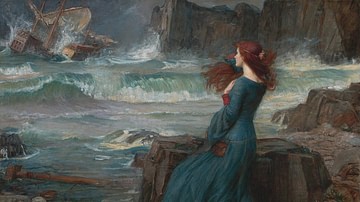
Definition
The Tempest - Shakespeare's Magical Tragicomedy
The Tempest is a play by William Shakespeare (c. 1564-1616), written in 1610 or 1611, and first performed for the court of James I of England (r. 1603-1625) on 2 November 1611. Believed to be the last play that Shakespeare wrote on his own...

Definition
William IV of Great Britain
William IV of Great Britain (r. 1830-1837) succeeded his elder brother George IV of Great Britain (r. 1820-1830) to become the fifth Hanoverian monarch. William had a successful naval career, and his reign is best remembered for the democratic...
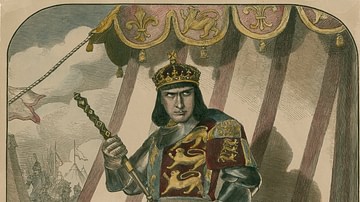
Definition
The Tragedy of Richard III - Shakespeare's First Great Villain
The Tragedy of Richard III, often referred to as simply Richard III, is a history play by William Shakespeare (1564-1616), probably written around 1592-94. It is the fourth and final installment of the 'first tetralogy' of Shakespeare's history...
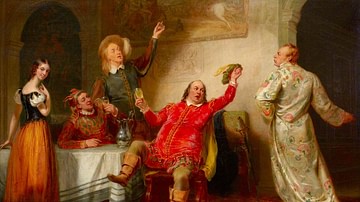
Image
Malvolio and Sir Toby, from Shakespeare's Twelfth Night
A depiction of Act 2 Scene 3 of William Shakespeare's comedy Twelfth Night in which the puritanical servant Malvolio tries to quiet down Sir Toby Belch and his fellow revelers. It is in this scene that Sir Toby delivers the famous line: "Dost...
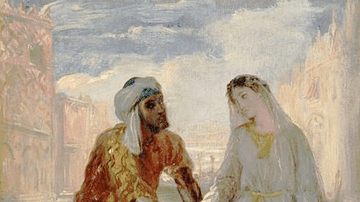
Image
Leo Africanus as Shakespeare's Othello
Many scholars, without concrete evidence, believe that Leo Africanus 1485-1554 was the inspiration behind William Shakespeare’s Othello, shown here with Desdemona in an 1849 painting by Théodore Chassériau, currently in the Louvre Museum...
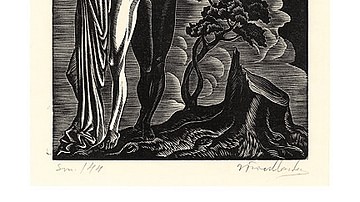
Image
Shakespeare's 'Two Loves' from Sonnet 144
An illustration of the 'two loves' described by William Shakespeare in Sonnet 144 ("Two loves I have for comfort and despair..."), wood engraving by Isac Friedlander, c. 1931.

Article
William the Conqueror's March on London
William the Conqueror (r. 1066-1087 CE) was victorious at the Battle of Hastings in October 1066 CE, and Harold Godwinson, King Harold II of England (r. Jan - Oct 1066 CE) was dead. The English throne and kingdom were there for the taking...
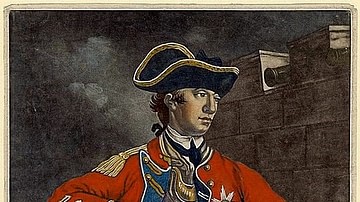
Definition
William Howe
Sir William Howe (1729-1814) was a British military officer and politician, most notable for his role as commander-in-chief of the British army during the initial years of the American Revolutionary War (1775-1783). Despite several significant...

Video
SHAKESPEARE EXPLAINED Richard III Act 1 Scene 2
Richard III Act 1 Scene 2 explained in depth. Part of the Shakespeare Explained series, this video will help you to understand Shakespeare and what is being said in the play. This Shakespeare Explained video of Richard III will be very...

Definition
Twelfth Night - Shakespeare's Most Festive Play
Twelfth Night, or What You Will is a romantic comedy by William Shakespeare (l. c. 1564-1616), written between 1600 and 1601 and first performed on 2 February 1602. As suggested by the title's allusion to Twelfth Night – the night before...